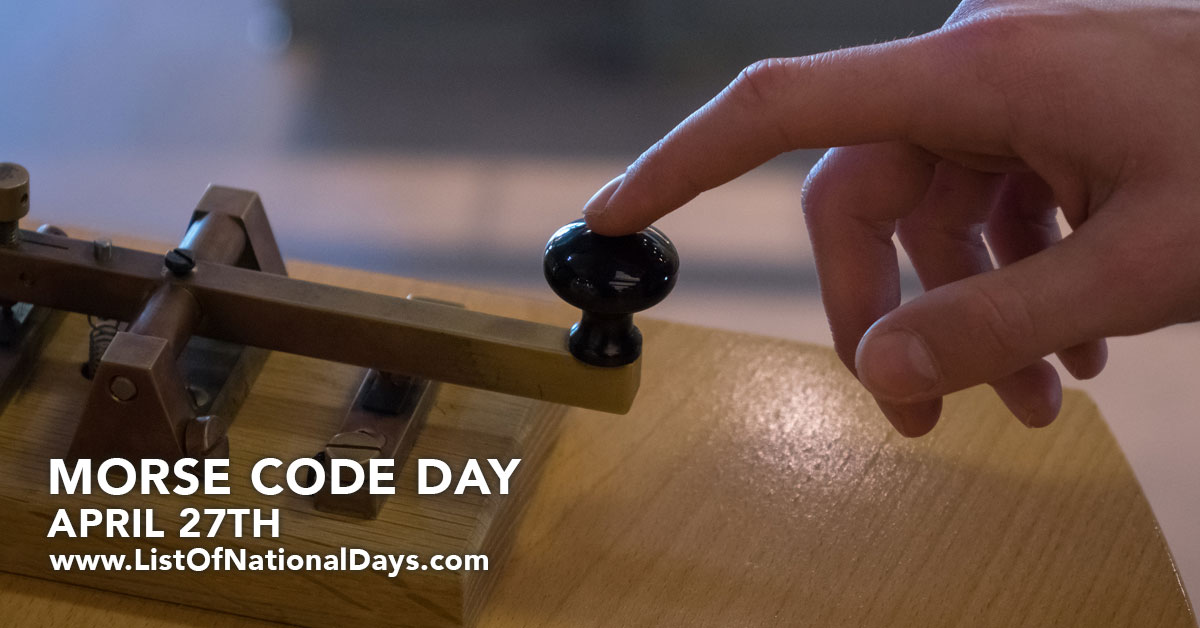Morse Code Day is a day that celebrates Samuel Morse’s invention of Morse Code, a system of transmitting messages using a series of dots and dashes.
#HASHTAGS
#MorseCodeDay
Morse Code Day is celebrated annually on April 27th.
| Year | Date | Day |
|---|---|---|
| 2022 | April 27 | Wednesday |
| 2023 | April 27 | Thursday |
| 2024 | April 27 | Saturday |
| 2025 | April 27 | Sunday |
| 2026 | April 27 | Monday |
| 2027 | April 27 | Tuesday |
| 2028 | April 27 | Thursday |
| 2029 | April 27 | Friday |
| 2030 | April 27 | Saturday |
| 2031 | April 27 | Sunday |
| 2032 | April 27 | Tuesday |
| 2033 | April 27 | Wednesday |
| 2034 | April 27 | Thursday |
| 2035 | April 27 | Friday |
